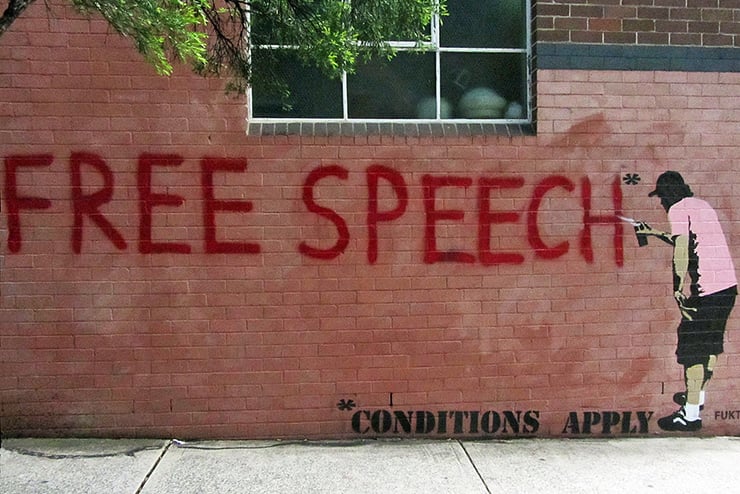I had thought to entitle this essay “Holocaust Denial.” But then, parsimony and frugality took over, so I utilized “H Denial” instead. Pretty much everyone knows exactly what that means. This is remarkable.
If one denies that the Spanish Civil War of 1936 ever took place, he offends no law. If one publicly doubts that the Russian Civil War of 1917 occurred, the statement is entirely legal. If one looks askance at the actual occurrence of the unpleasantness of 1861 in the U.S., again he need not fear that the sheriff will come down on him. One could go on almost forever in casting doubt on the plethora of other historical events that would not offend any law. But it’s easy to see where I am going with this. In case not, here are a few more examples.
Suppose one casts aspersions on the realities of Stalin’s mass starvation of the Ukrainians, or the Turkish slaughter of the Greeks, or the plight of the Ibos. Suppose one denies any of these horrific episodes ever took place. Such opinions violate no law whatsoever.
There is but one exception to this pattern. If one casts doubt on the existence of the Holocaust, one can be imprisoned for it. Canada, Israel, and many countries in Europe have strict laws against doing any such thing.
Why the difference between this type of statement and other similarly fallacious claims? Why is it that questioning the extent, or worse, the existence of the H is the one historical episode that can land you in the hoosegow in so many different nations, whereas this is not the case for virtually any other such statement?
One possible explanation for this situation is that the Holocaust killed more innocent people than any other. But this cannot be true, since the Holocaust is widely estimated at murdering only 6 million people, while Mao is widely “credited” with 60 million deaths, Stalin with 20 million, and Hitler with 11 million, as there were 5 million others besides Jews killed during his rule.
Another possibility is that 6 million was a very high percentage of all Jews, something in the neighborhood of 40 percent. But Pol Pot murdered two thirds of his fellow citizens, a much higher percentage.
Many commentators would explain that this is owing to Jewish influence. This demographic did not want their horrific experience trivialized by denial. This is a plausible account, but the influence of this group of people is reputed to be higher in the United States than anywhere else, and, yet, this prohibition on free speech does not exist here. I shall not pursue this claim any further. Instead, I ask, given that this is the case, arguendo, is it a wise move on the part of the Jewish community?
Yes and no is my answer.
On the positive side of the account, if this memory is not besmirched by false doubters, the recognition of it will more likely remain. Otherwise, there is the possible danger of forgetfulness. Why is this important? One of the mottos that has emerged from this very sad episode in history is “never again.” This is a rallying cry for the Jewish people, encouraging them in their present war with Hamas, and in all past wars with the enemies of Israel. If the Holocaust disappears down the memory hole of history, that enervating motto will have lost some of its appeal, its ability to inspire.
But there is also a negative side to this decision to pass a law against doubting or disparaging the Holocaust. It furnishes anti-Semites with weaponry. It allows them to make their case against the People of the Book more easily. No matter what spin you place on it, prohibiting by law the denial of a historical episode just does not sit right with most people. It reeks of nothing so much as an abnegation of free speech rights. It is all too open to reductios ad absurdum galore.
For example, at this rate we will soon be incarcerating people for claiming that the sun revolves around the earth, that the latter is flat, and that Santa Claus does not exist. No one wants to be a laughingstock. Yet, that is the danger of supporting a law that will imprison people for speaking supposed misinformation or disinformation about historical events.
Jews have a widely well-known and justified reputation for intellectual excellence. We have earned more Nobel prizes for accomplishments of the mind than any other group, on a per capita basis. This threat to incarcerate deniers is hardly compatible with that well-deserved reputation of ours. It may be a cliché, but sunlight is the best intellectual disinfectant. It beats imprisonment by a county mile. We should win debates against deniers, not handcuff them.



Leave a Reply